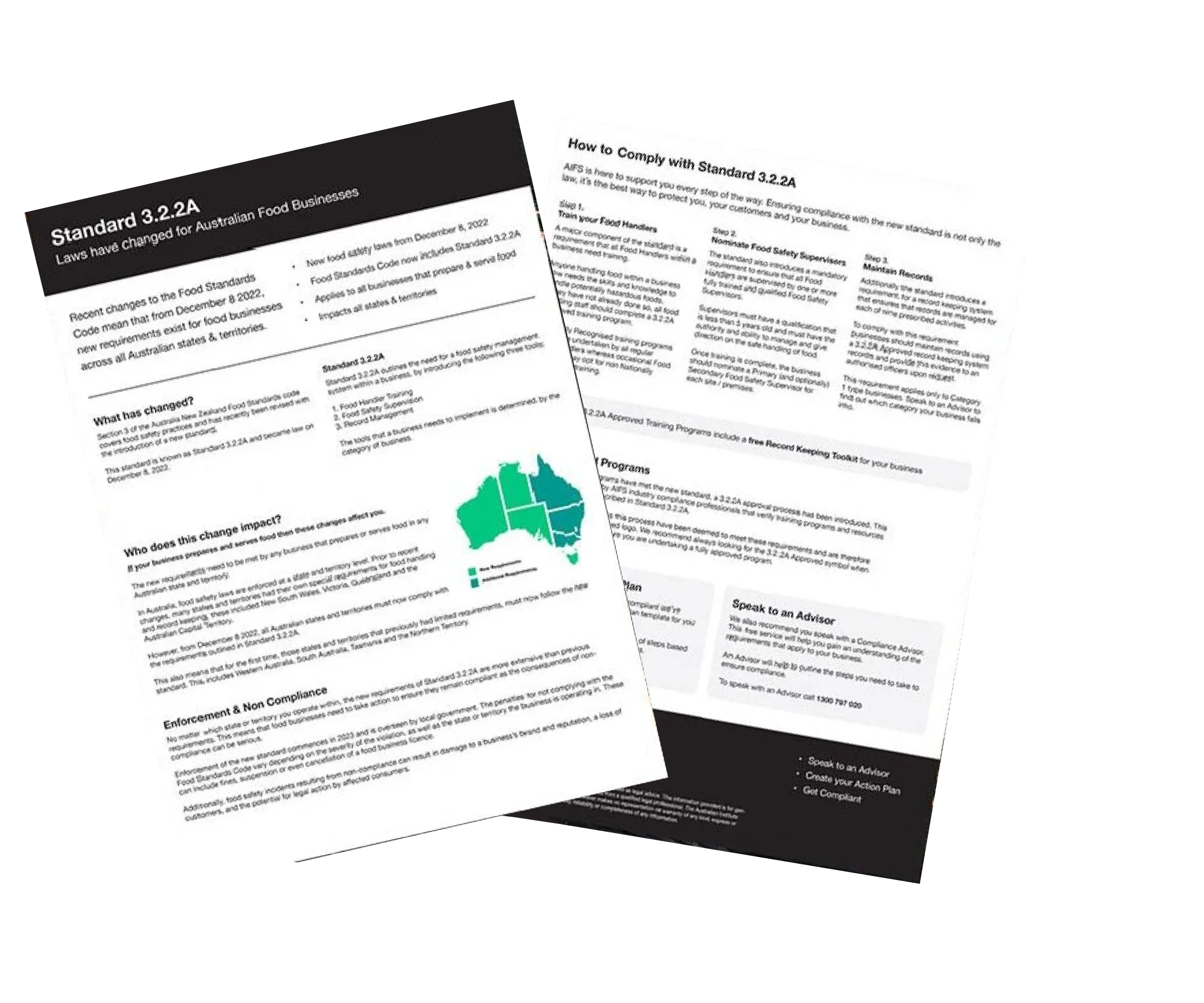

This standard was developed to combat preventable foodborne illnesses and strengthen food safety in food service and retail sectors. Standard 3.2.2A addresses critical food safety risks and promotes knowledge, skills, supervision, and food handling practices for safer food preparation and service.

The standard applies to category one and category two businesses in the food sector.
